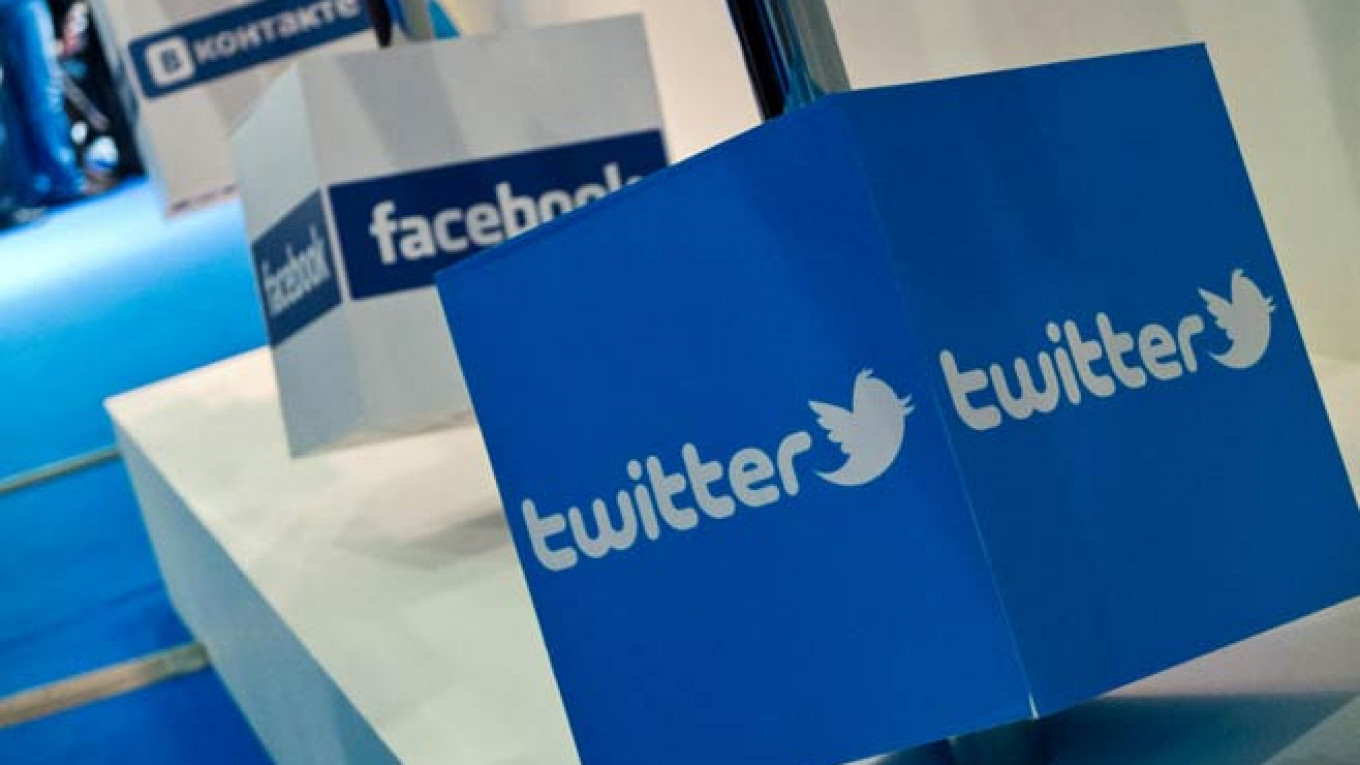Amid growing criticism of its increasingly tighter regulation of the Internet, Russia's official media watchdog on Monday vowed to continue its fight in the "information war," saying freedom of speech "does not mean everything is permitted."
The government made clear at an annual meeting of top officials of the Federal Mass Media Inspection Service, or Roskomnadzor, that it intended to boost its legal regulatory grip over the Internet and mass media, citing a need to protect the majority of the population from harmful information.
The agency's head, Alexander Zharov, told The Moscow Times that "it is very important to realize the aim for free speech, but freedom of speech does not mean that everything is permitted."
Zharov's comments came just days after President Vladimir Putin said the Internet was a "special project of the CIA," a statement which was met with sharp criticism amid growing tensions between Russia and the U.S. and fears of a second Cold War.
Roskomnadzor currently blocks access to 2,132 websites, but at least 56,000 more are blocked only because they share an IP address with the one on the blacklist. Access to a website can be restricted if its content can harm children or if it contains information that infringes upon intellectual property. Russian laws also allow state agencies to block websites without a court order if they promote extremism, suicide or illegal drugs, or call on people to come to unsanctioned protest rallies.
Roskomnadzor is the main Russian agency responsible for executing the recently passed legislation regulating the Internet. Various officials from the media watchdog echoed the belief that the Internet required such firm regulation, saying during the meeting and on the sidelines that a lack of regulation could be dangerous for the public. The officials did not offer suggestions on how to balance regulation and freedom of speech. ?
State Duma Deputy Sergei Zheleznyak, in his speech to dozens of high-ranking officials, described the situation as an "information war" that posed a threat to Russia.
"Roskomnadzor stands at the forefront of the information war that was unleashed against our country and our values," Zheleznyak said.
Since Feb. 1, when the new anti-extremism legislation came into force, Russian prosecutors have blocked access to about 100 websites, including some that called for protests over the ongoing crisis in Ukraine, Interfax reported Monday.
Last week, the State Duma passed in its second reading a bill that will oblige bloggers to register as online media if they have more than 3,000 visitors per day. In addition, legislators want to require social networks — including foreign ones such as Twitter and Facebook — to keep their servers in Russia and store users' information for at least six months.
"We are one step away from the Great Firewall of China; in any case, the Russian government now has all the instruments necessary to limit the work of foreign social networks here," said Andrei Soldatov, a prominent security analyst.
Pavel Durov, the former head of Russia's largest social network, Vkontakte, fled Russia last week after he said the company's Kremlin-friendly owners fired him from his post. Durov created the network seven years ago and cited his own refusal to share users' personal information with law enforcement agencies as one of the reasons for his departure.
"The current process of blocking more than 4 percent of Russian websites is not transparent at all, we want the Internet to be a self-regulatory environment," Artyom Kozlyuk, head of Roskomsvoboda, an organization that advocates free Internet in Russia, said in a phone interview.
"The Russian Internet has [up until now] been developing freely and spontaneously, which is why we have such successful IT companies as Yandex and Ozon," he said.?
Contact the author at i.nechepurenko@imedia.ru
A Message from The Moscow Times:
Dear readers,
We are facing unprecedented challenges. Russia's Prosecutor General's Office has designated The Moscow Times as an "undesirable" organization, criminalizing our work and putting our staff at risk of prosecution. This follows our earlier unjust labeling as a "foreign agent."
These actions are direct attempts to silence independent journalism in Russia. The authorities claim our work "discredits the decisions of the Russian leadership." We see things differently: we strive to provide accurate, unbiased reporting on Russia.
We, the journalists of The Moscow Times, refuse to be silenced. But to continue our work, we need your help.
Your support, no matter how small, makes a world of difference. If you can, please support us monthly starting from just $2. It's quick to set up, and every contribution makes a significant impact.
By supporting The Moscow Times, you're defending open, independent journalism in the face of repression. Thank you for standing with us.
Remind me later.


